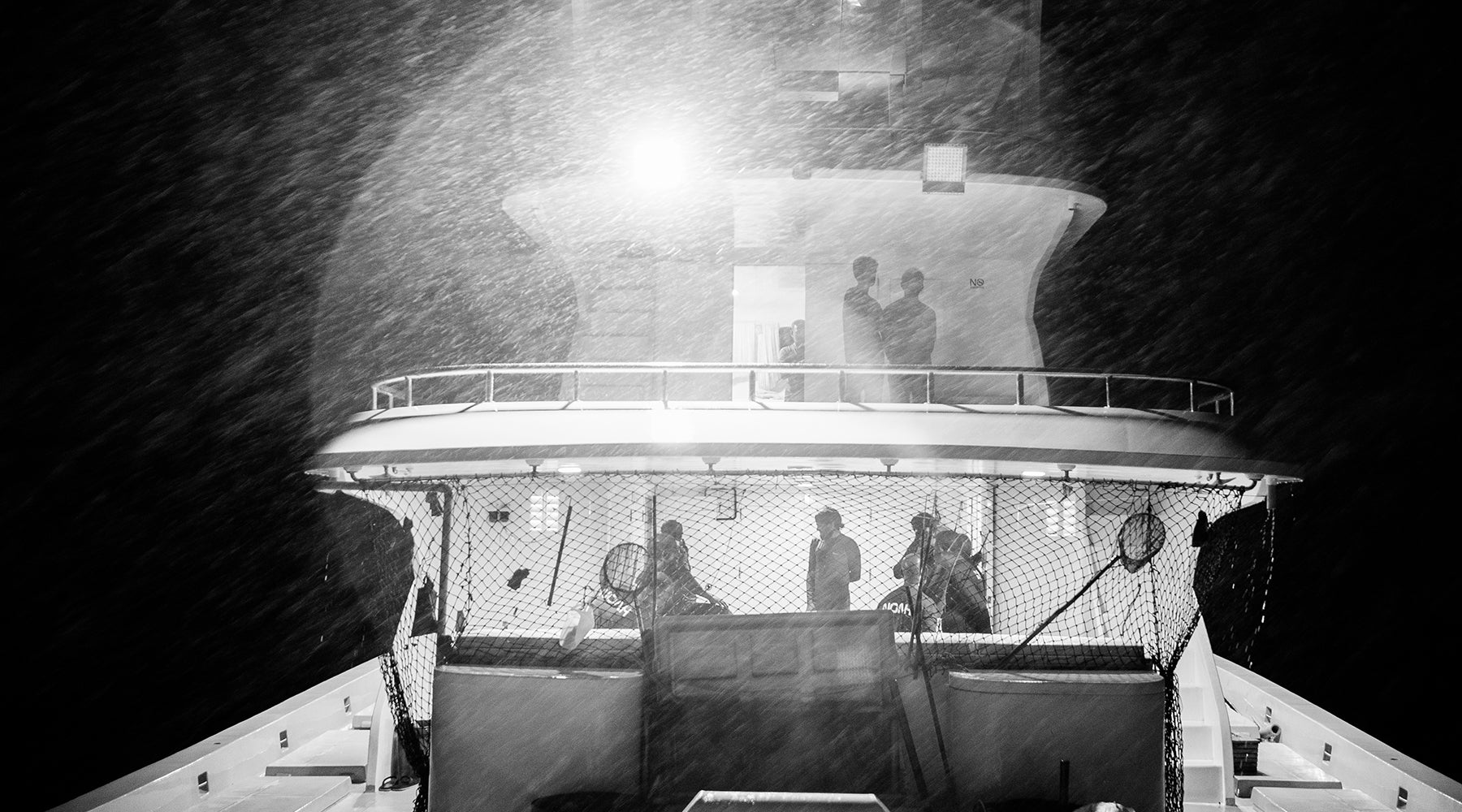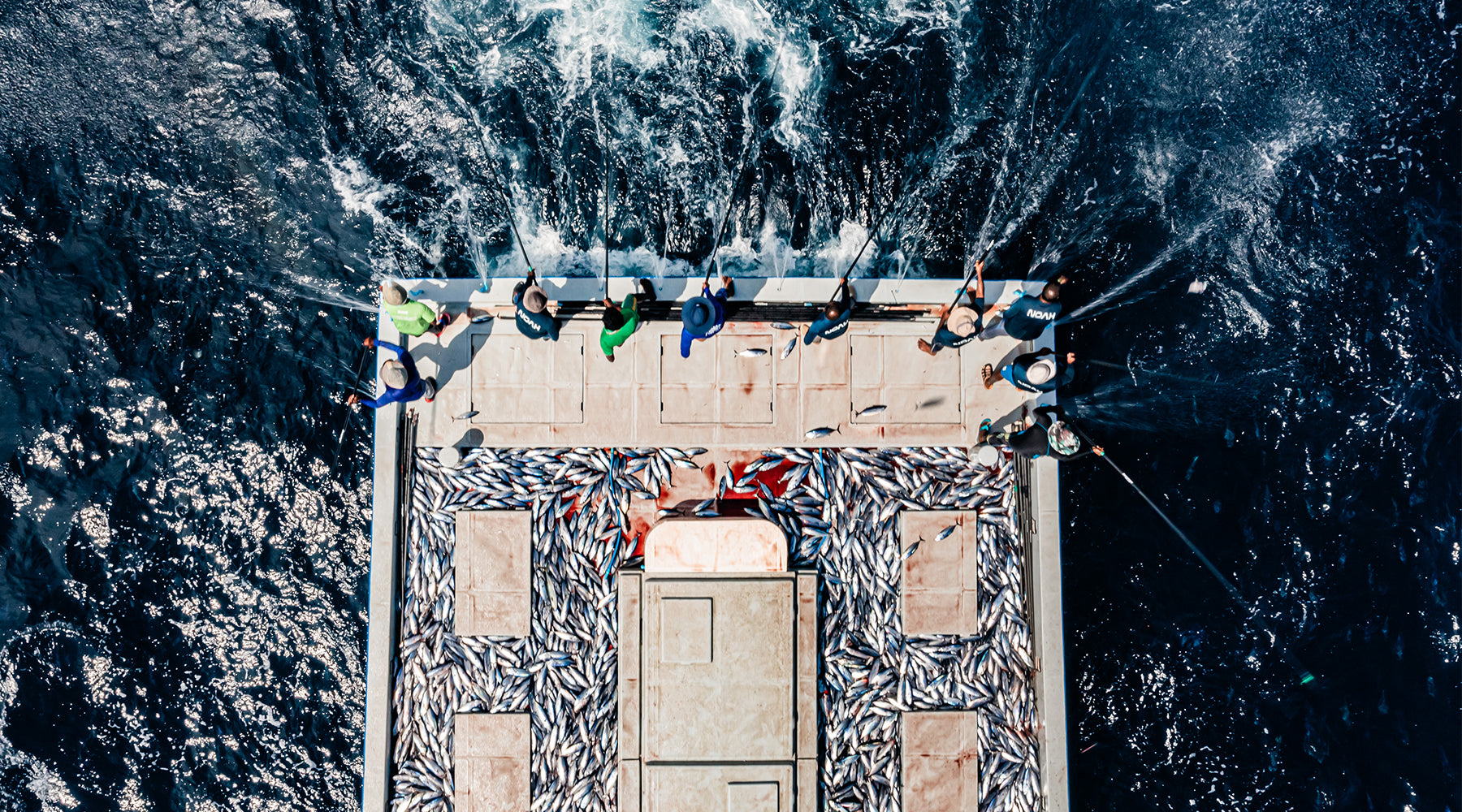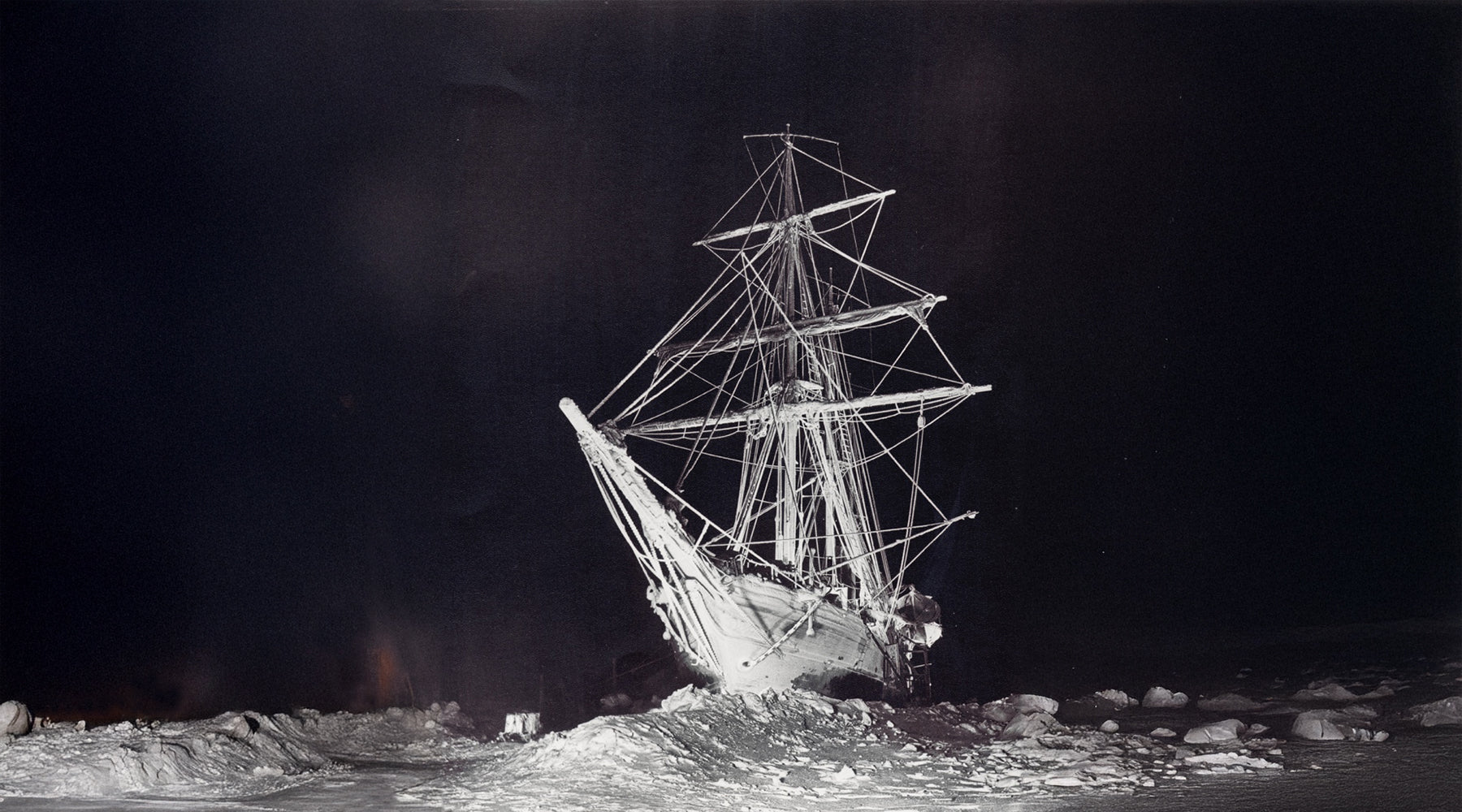
Capture The Extreme 2024 - Explorer's Choice Award - Behind the Winning Shot
We just announced that the winner of the 2024 Explorer's Choice Award for Capture The Extreme in collaboration with Leica, was Felix Vollmann. He received just over 25% of the public vote for his remarkable shot Noah's Dancers. Here, Vollmann details how this shot came about and shares some of his own words and images from the wider "Noah's Dancers" photo series.
The Winning Shot

Project Purpose
Noah's Dancers Photo Series
One part of the documentary was spending a good week with the fishermen of the fishing vessel Noah and documenting their work, their art of fishing, their lives. The technique is called Pole and Line fishing and it is a traditional fishing method. It is considered a very sustainable fishing method as the fishermen catch one-by-one without risk of bycatch (f.e. turtles, dolphins or sharks). They cast their line into the ocean and the fish are attracted to the feathered, barbless lure. When the tuna bites, the fishermen quickly pull the fish out of the water one-at-a-time, onto the back of the boat, where it easily releases itself from the hook.




My time on the boat was an experience of a lifetime and something that I have never seen nor felt before. Being in the middle of the Indian Ocean for a couple of days and nights - for a city person like me, was exciting, scary, an unbelievable archaic feeling that I cannot forget. What I have seen and who I have met opened my eyes to not only my consumption of fish (tuna) but in general to a way of life. Respecting the ocean and seeing it as a source of life and something that is so mystical and huge that it is protected.

Of course, I can never understand this kind of life fully, but I was able to grasp a tiny window of it. The men shared parts of their lives with me and I visited their homes and we ate together, the fish they had taught me to catch. This type of fishing, fishing for livelihood, is very different from sport fishing for example.
I am very thankful to have won the Capture the Extreme - Explorer's Choice Award by votes. I appreciate everyone voting for me and taking the time. It is very important to have these challenges/competitions, not (only to have the chance) for the win, far more to take part and be able to show your work and also write about it. The platform that Shackleton offers is very crucial for that, to gain exposure and recognition and to get feedback. It motivated me and it completes a cycle of work. Now the photo is out there being seen on a larger platform, it is a lot more satisfying than just my website and social media. I would like to dedicate this win to the Fisherman of the fishing vessel Noah. It is their doing, being and their art of life.


